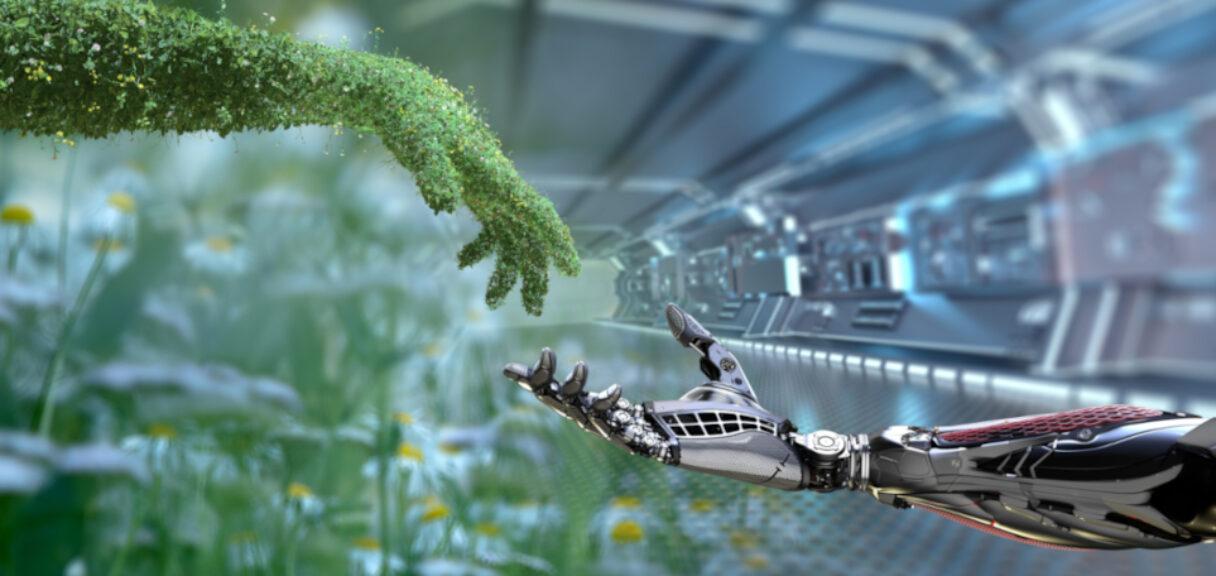The environmental issue is deeply linked to that of industry, if only because of its impact on pollution. In France, it is estimated that the industrial sector alone generates 17.8% of greenhouse gases[1].
However, it is clear that manufacturers have not yet taken the measure of the current and future crisis. If Industry 4.0 and digital technology have and will profoundly transform the sector as we know it, the question of the environment must be at the centre of this evolution.
The environment, a concern of industry since the 19th century
The environmental issue is not new to industry. In 1864, at the midst of the Second Industrial Revolution, George Perkins Marsh, considered to be the first American ecologist, was already questioning the influence of mankind on its environment: “Man’s destructive action has become more and more energetic and relentless as he has progressed in civilisation“[2].
In recent times, many companies have already understood sustainable development as a guarantee of growth and performance[3]. 3] The aim was to promote a series of commitments to economic development that respected the environment and human rights. Today, most companies are obliged to integrate environmental and social concerns into their strategies, primarily as a public relations exercise.
Industry 4.0, which has profoundly changed industrial processes by creating an interconnected and more agile factory thanks to digital tools, integrates these issues. Indeed, in an approach of constant optimisation, Industry 4.0 would reduce energy and resource consumption while improving production. The question is to know what impact this digitalisation has on the environment.
Is digital really sustainable?
New digital tools such as the Cloud, AI and other so-called “intelligent” systems seem to go hand in hand with sustainable development. They can even benefit the company from a financial point of view: cost reductions, creation of new services, improved sales, loyalty and image recovery, etc.
What does digital look like in practice? E-mails, video streams, all kinds of data, storage and transport of these same data, omnipresence of social networks… Nothing tangible at first sight. But does this mean that it is non-polluting? The architecture of digital technology and all its real and concrete uses are based on electronic equipment.
And that’s the problem: this equipment is a source of considerable electricity consumption. The European Commission estimates that the energy and environmental footprint of digital technology corresponds to 5% to 9% of global electricity consumption and more than 2% of all emissions[4].
This consumption is linked to the increase in data traffic, both in terms of volume and the number of objects that will soon be connected. This equipment uses more and more scarce raw materials; it takes 80 times more energy to produce a gram of smartphone than a gram of car[5]. Their manufacture is often polluting and consumes water (a resource already under great strain in general) with a fairly short life cycle (not to mention programmed obsolescence) and which generates electronic waste that is difficult to recycle to date.
The environmental issue at the heart of the industry of the future
In the end, digital is no different from other manufactured goods and the negative findings on the environment are much the same as for other industries. The question is not whether the use of digital technology is positive or negative, but whether the current situation is still sustainable. The answer is no. The problem of pollution will not be solved if we continue to ignore it or pass it on from generation to generation.
Yet good practices exist: players such as Facebook, Apple and Google have committed to an Internet powered 100% by renewable energy. Microsoft’s Natick project is another relevant illustration: it aims to control renewable energy consumption and to use technological innovations in this direction[6].
It is necessary to remain optimistic and to see progress and technology as a solution to combat pollution. But how long can we continue to bet on the future without focusing on the present?
We must not delude ourselves, so that future generations can live, the priority must be to minimise the environmental impact in all sectors of industry. This must ensure that our society does not give up on its lifestyles and its economy, but this implies awareness and immediate action. We need to get out of this ambivalence, between pro-sustainable development discourse and actions that do not follow. The next industrial revolution must be a transformation of thinking and find ways to integrate eco-design from the beginning of the creation process.
[1] Cars, industry, meat… What are the causes of global warming in France? Le Monde published on 08/07/2019
[2] George Perkins Marsh, Man and Nature or Physical Geography as Modified by Human Action
[3] “Our Common Future” published in 1987
[4] European Commission Communication on Shaping Europe’s Digital Future, published on 19/02/2020
[5] Digital pollution, What is it? Greenpeace
[6] Microsoft’s submerged datacenter resurfaces, Le Monde Informatique, published on 15/09/2020



